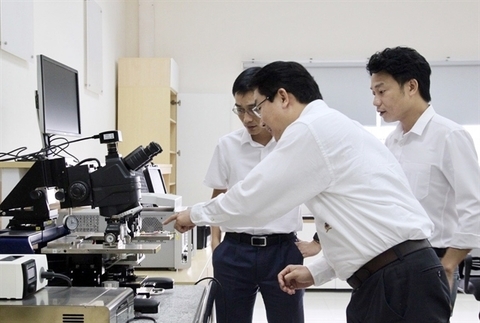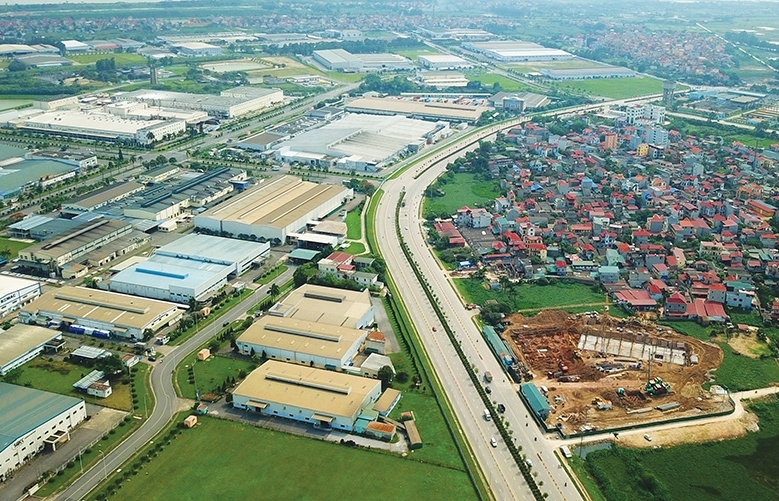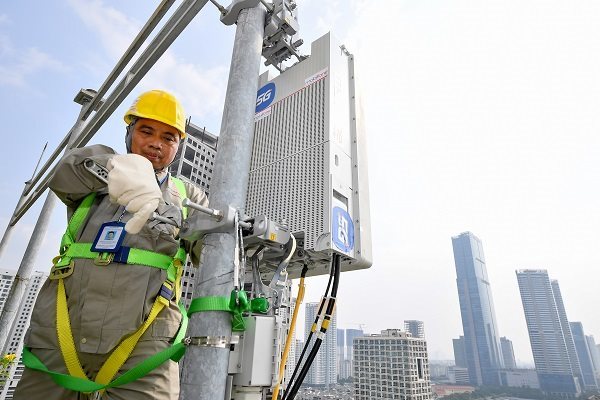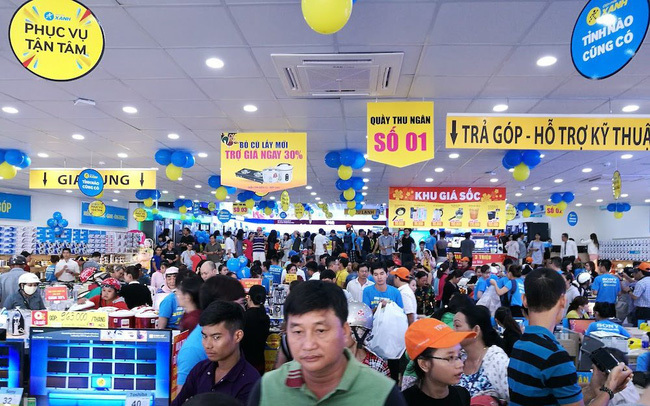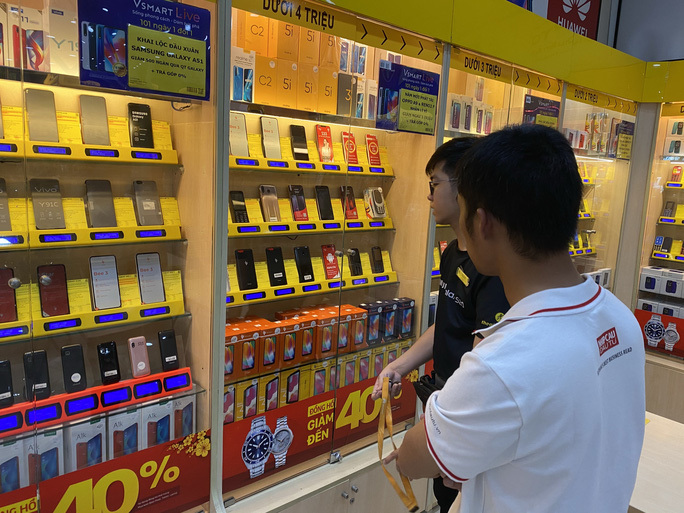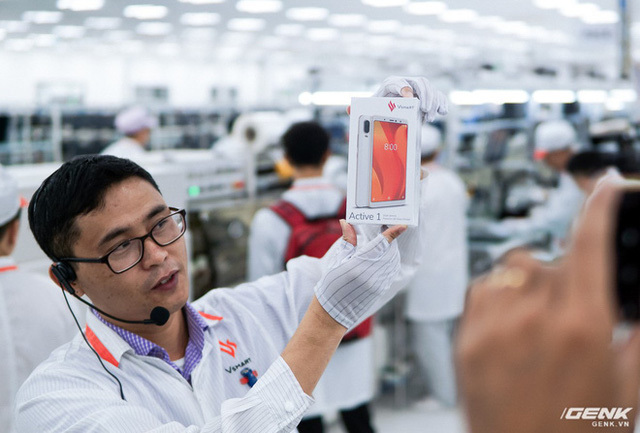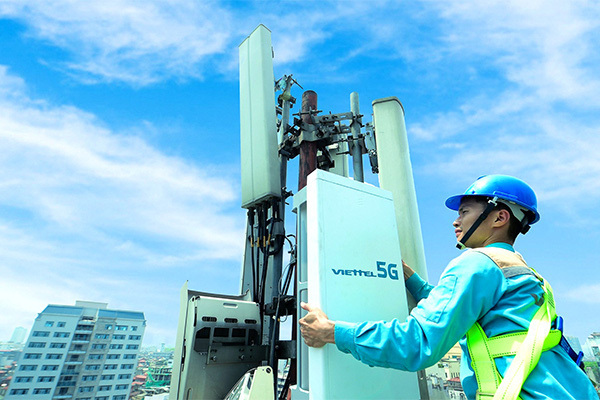- © Copyright of Vietnamnet Global.
- Tel: 024 3772 7988 Fax: (024) 37722734
- Email: evnn@vietnamnet.vn
5G
Update news 5G
5G network testing licences for Viettel, VNPT and MobiFone extended
The Telecommunications Department said that the Vietnam Post and Telecommunications Group’s (VNPT) license to test the 5G technology has expired and it has asked for extension.
‘Make in Vietnam’ Vsmart Aris 5G mobile phone in international press
 News about the launch of Vsmart Aris 5G smartphone made in Vietnam by VinSmart has appeared in Forbes, The New York Times, Reuters and The Star.
News about the launch of Vsmart Aris 5G smartphone made in Vietnam by VinSmart has appeared in Forbes, The New York Times, Reuters and The Star.
Vietnam to commercialise 5G in October
Vietnam will commercialise 5G network in October using entirely domestically produced equipment, according to the Ministry of Information and Communications (MIC).
Orientations put Hanoi onto investment radar
Amidst the global trend of investment shifts, Hanoi is betting on new orientations and solutions to increase its appeal, expecting to open opportunities for international investors to venture further afield.
Homemade tech makes Vietnam top contestant in 5G
 Fifth-generation mobile network technology has become a firm foundation for the ASEAN’s ongoing digital transformation in which Vietnam is among the most active participants.
Fifth-generation mobile network technology has become a firm foundation for the ASEAN’s ongoing digital transformation in which Vietnam is among the most active participants.
Telcos change view, consider sharing infrastructure
 Telcos, which ignored earlier advice on sharing infrastructure, have now changed their mind.
Telcos, which ignored earlier advice on sharing infrastructure, have now changed their mind.
State-led approach expected to boost 5G deployment in Vietnam
 5G appears to be high on the Vietnamese government’s priority list, with the earliest of services set to be commercialized in mid-2020 following trials conducted through 2019.
5G appears to be high on the Vietnamese government’s priority list, with the earliest of services set to be commercialized in mid-2020 following trials conducted through 2019.
In good stead to capitalise on digital tech
 Vietnam’s digital transformation is entering a new development period which is expected to lure increasing involvement among local and multinational corporations.
Vietnam’s digital transformation is entering a new development period which is expected to lure increasing involvement among local and multinational corporations.
All hands on deck for tech upgrades
 The wait going to over, as domestic and international technology businesses are expected to soon benefit from new supporting policies, breathing new life into the burgeoning tech market.
The wait going to over, as domestic and international technology businesses are expected to soon benefit from new supporting policies, breathing new life into the burgeoning tech market.
Vietnam’s second largest telco gets green light for 5G tech tests
 Vietnam’s second largest telco is ready in terms of technology, technology and network structure for deploying commercial 5G network.
Vietnam’s second largest telco is ready in terms of technology, technology and network structure for deploying commercial 5G network.
Opportunities abound for telecoms services
 Vietnam’s telecommunication market is becoming more attractive to overseas investors, propelled by the government’s strategy to consider it a key driver for the country’s digital economy
Vietnam’s telecommunication market is becoming more attractive to overseas investors, propelled by the government’s strategy to consider it a key driver for the country’s digital economy
5G coronavirus claims 'dangerous' as mast fires investigated
Government officials say there is no credible evidence of a link between 5G and the virus.
5G to fuel smart manufacturing in Vietnam
 As 5G has already gone live in several markets around the world, people are getting a first-hand experience of the technology.
As 5G has already gone live in several markets around the world, people are getting a first-hand experience of the technology.
Is Vietnam’s mobile phone market saturated?
 Analysts began issuing warnings about the saturation of the mobile phone market several years ago. However, mobile phone distributors are still thriving.
Analysts began issuing warnings about the saturation of the mobile phone market several years ago. However, mobile phone distributors are still thriving.
Vietnam has great advantages in digital transformation
 Compared with businesses in the US and Europe, the digital transformation process in Vietnamese enterprises is less risky and simpler.
Compared with businesses in the US and Europe, the digital transformation process in Vietnamese enterprises is less risky and simpler.
Vietnamese smartphone brands find it difficult to grow in home market
 Dozens of Vietnamese mobile phone brands once existed in the domestic market, but now only a few brands remain.
Dozens of Vietnamese mobile phone brands once existed in the domestic market, but now only a few brands remain.
Super-cheap smartphone program brings golden opportunities to Vsmart
 The Ministry of Information and Communications (MIC) on March 2 announced a program on popularizing smartphones to 100 percent of the population.
The Ministry of Information and Communications (MIC) on March 2 announced a program on popularizing smartphones to 100 percent of the population.
Tech titans line up to seize 5G advantages
 Next week, the United States-based technology giant Qualcomm, the largest global supplier of smartphone chips, will launch its Hanoi office after over five years of presence in the country, showing its ambition to boost its footprint.
Next week, the United States-based technology giant Qualcomm, the largest global supplier of smartphone chips, will launch its Hanoi office after over five years of presence in the country, showing its ambition to boost its footprint.
Will the 5G revolution reignite VN mobile phone market?
 The mobile phone market is getting saturated and phone distributors must seek a new driving force for growth from other sectors.
The mobile phone market is getting saturated and phone distributors must seek a new driving force for growth from other sectors.
Vietnam plans to allocate wavebands through auction
 If the government puts the new 2600 MHz frequency band up for auction, it will be able to collect VND6-8 trillion, a significant amount of money in the context of Covid-19 which is threatening economic growth.
If the government puts the new 2600 MHz frequency band up for auction, it will be able to collect VND6-8 trillion, a significant amount of money in the context of Covid-19 which is threatening economic growth.


